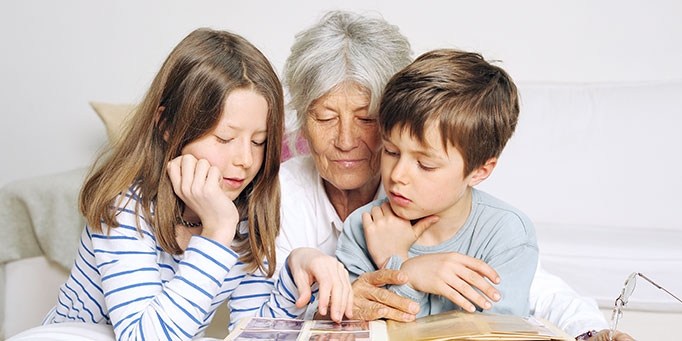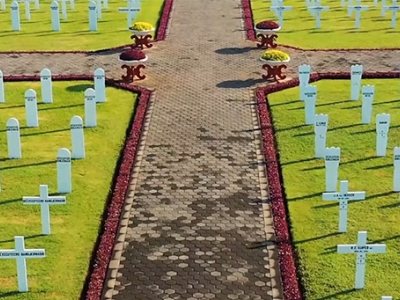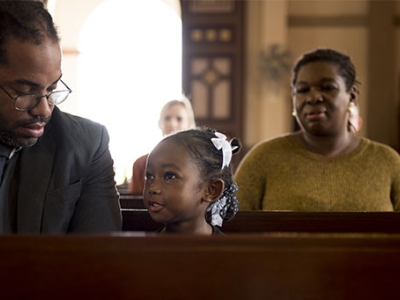
Lest we forget … our spiritual ancestors too
Inspiring gratitude and courage in our children.
Around the time of ANZAC Day, we often tell our children the stories of their ancestors who served in war. We dust off old portraits and medals to show them and try to pass on a sense of gratitude and reverence for all that our forebears had to fight for and endure. We help our children research their family history for school projects, taking note of who served where and when, or who stayed home and what they did to help the war effort.
It is so important for the younger generations to hear and appreciate these stories, lest we forget the cost of the freedoms we enjoy. We must continue to tell them about our ancestors who recognised the threat of evil and bravely stood up to fight it. These stories encourage our children to be thankful for those who have gone before and to face the future with courageous determination to follow in their footsteps.
In the same way, it is important for us to tell our children the stories of their spiritual ancestors, who faithfully handed the gospel down. As the saying goes, Christianity is only ever one generation away from extinction. It takes a certain amount of courage and determination for each generation to communicate the good news about Jesus to the next. So let’s tell stories that will encourage our children to be thankful for those Christians who have gone before and to commit themselves to following in their footsteps.
In our family
Our spiritual ancestors are sometimes people within our own family. Paul gave thanks for Timothy’s sincere faith: ‘which first lived in your grandmother Lois and in your mother Eunice and, I am persuaded, now lives in you also’ (1 Timothy 1:5). Later, Paul encouraged Timothy to hold on to what he had learned from his mother and grandmother:
But as for you, continue in what you have learned and have become convinced of, because you know those from whom you learned it, and how from infancy you have known the Holy Scriptures, which are able to make you wise for salvation through faith in Christ Jesus. (1 Timothy 3:14–15)
When I was growing up, no-one in my extended family went to church regularly. So I used to think that I was the first Christian in my family for generations. But as I got to know my family history better, I found out that my great-grandmother had been an enthusiastic Christian and faithful churchgoer. I also found out that a great aunt, who died before I was even born, had been married to an Anglican minister.
Since I am the most ‘religious’ person among my siblings and cousins, I now have a growing collection of Christian artefacts. I have inherited a historic family Bible, which dates back to the 18th century; a Book of Common Prayer, which was given to my great-grandmother by her mother on her wedding day in 1911; and some stoles and a home communion set that were used by my great uncle in his ministry.
While none of these people was directly involved in passing the gospel on to me, God has surely used their prayers and example for his glory within my wider family. I actually had the opportunity to meet my great-grandmother a few times before she died in 1997 and I like to think that she prayed for me.
When it comes to my kids, I hope they will be telling their children about how they heard the gospel and got to know the Bible right ‘from infancy’, just as Timothy did.
In our lives
A powerful way to teach our children about their spiritual ancestry is to tell them the story of how we became a Christian. Where did we first hear the good news? Who told us? When did we first truly understand it?
Paul encourages Timothy to play his part in this great chain of gospel telling, saying ‘the things you have heard me say in the presence of many witnesses entrust to reliable people who will also be qualified to teach others’ (2 Timothy 2:2).
A few years ago, I had the chance to introduce my children to the SRE teacher who was instrumental in me coming to faith at the age of about 10. I believe she still prays for me. What a blessing Mrs Hodges has been!
In our world
It’s also exciting to tell our children the story of how the gospel of salvation spread from just one man and his twelve friends in first century Palestine … all the way down to us in twenty-first century Australia! Sometimes that will involve a little bit of research into the history of Christian mission.
I recently heard an interesting lecture by Dr Ruth Lukabyo about Samuel Marsden and Thomas Hassall, who, together with their wives and children, were very influential in the evangelisation of the colony of New South Wales. Samuel Marsden had been sent by William Wilberforce to assist Richard Johnson, the first chaplain to the colony. Thomas Hassall was the son of some English missionaries from the London Missionary Society. Hassall eventually married the daughter of Samuel and Eliza Marsden and together, the two families established Christian ministry and mission in New South Wales.
Life in the early colony was extremely tough: communication with ‘home’ in England was difficult, food had to be grown from scratch, opportunities for education or recreation were very limited and illness and accidents were rife. In spite of this, these two families persevered in worshipping God and teaching others about him in a country far from home.
And according to Dr Lukabyo, many Sydney Anglicans can still trace their family tree back to the Marsden and Hassall families!
This ANZAC Day, as we tell our children the stories of their ancestors who served in war, let’s also consider how we might tell them the stories of their spiritual ancestors who passed down the gospel. May the stories we tell help them to feel grateful for those who’ve gone before and inspired to bravely follow their example.
---
Harriet Connor is the Content Editor for Growing Faith and the author of Families in God's Plan: 12 Foundational Bible Studies and Big Picture Parents: Ancient Wisdom for Modern Life (Wipf and Stock, 2017). She lives on the Central Coast of NSW with her husband and four sons.

GPS: God's Plan for Salvation
If followers of Jesus don’t have a grasp of the Bible as a whole, what it’s telling and where it’s pointing, then trying to live as a Christian isn’t much better than being lost on a mystery journey caught in heavy fog without a light or compass.
For more articles from Growing Faith, subscribe to our monthly e-newsletter.
To hear about the latest books and resources from Youthworks Media, subscribe here.








